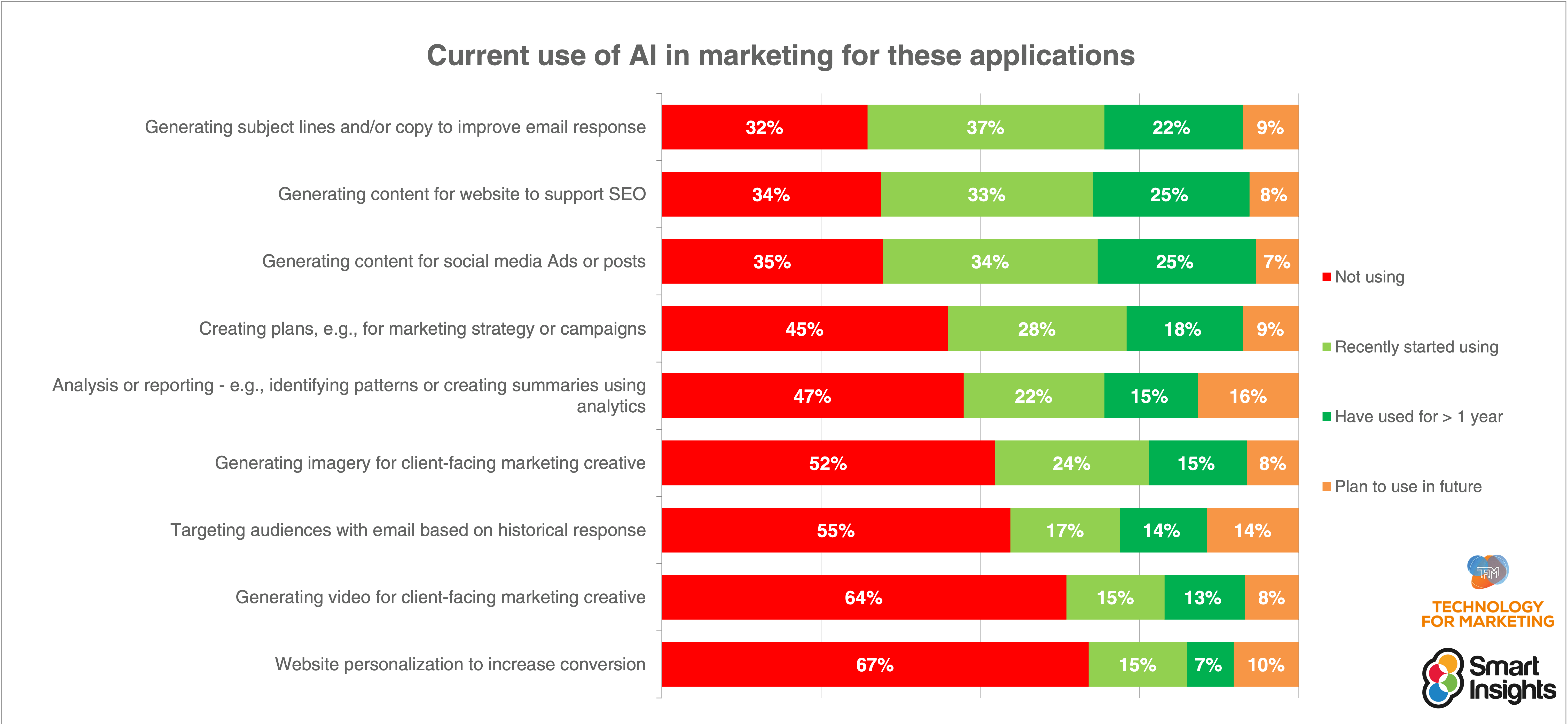Are you ready to supercharge your AI marketing strategy in 2025? You might think you’re doing everything right, but there could be mistakes holding you back.
Imagine this: a few simple tweaks could dramatically boost your success. Intrigued? You should be! AI marketing is evolving fast, and keeping up is essential to staying ahead of the competition. Yet, many businesses fall into common traps that can hinder their progress.
By recognizing and avoiding these pitfalls, you can transform your approach and achieve outstanding results. We’ll uncover the top three mistakes you might be making without even realizing it. Discover how to sidestep these errors and unlock the full potential of your AI marketing efforts. Ready to dive in? Let’s get started!
Table of Contents
ToggleAvoid Data Overload
In 2025, AI marketing strategies are more advanced than ever, but they come with their own set of pitfalls. One common mistake marketers are making is dealing with data overload. Having too much data can be overwhelming and counterproductive. It’s essential to focus on the right data to make informed decisions. Below, we’ll discuss how to avoid data overload by focusing on quality data and streamlining data collection.
Focus on Quality Data
Not all data is created equal. You might be tempted to collect as much information as possible, but it’s crucial to focus on quality over quantity. When you prioritize high-quality data, your marketing decisions become more precise and effective.
Imagine trying to find a needle in a haystack when you have piles of irrelevant data. Instead, zero in on data that directly impacts your goals. This approach saves time and resources.
Ask yourself: What information truly drives your strategy forward? Identify these data points and make them your priority.
Streamline Data Collection
Data collection doesn’t need to be a complicated process. Simplify it by using tools that automate data gathering. This reduces the risk of human error and ensures consistency in your data.
Consider a situation where you’re manually tracking customer interactions across multiple platforms. It’s not only time-consuming but also prone to mistakes. Automate these processes to gather reliable data efficiently.
Think about the tools you currently use. Are they helping or hindering your data collection? Choose tools that integrate seamlessly with your existing systems.
By focusing on quality data and streamlining collection, you can avoid data overload and enhance your AI marketing strategy. Are you ready to make these changes for a more effective marketing approach in 2025?

Credit: www.forbes.com
Prioritize Personalization
In the fast-paced world of AI marketing, personalization holds the key to success in 2025. Consumers crave experiences tailored to their needs. Brands that fail to deliver personalized content risk losing customer loyalty. Prioritizing personalization can bridge the gap between brands and consumers. It enhances engagement and drives conversions.
Leverage Ai for Customer Insights
AI tools offer valuable insights into customer behaviors. These tools analyze data patterns to reveal preferences and interests. Businesses can use these insights to create targeted marketing campaigns. Understanding what your audience wants can improve engagement. Personalized content resonates more with consumers.
Implement Dynamic Content Strategies
Dynamic content adapts based on user interactions. It changes in real-time to meet consumer needs. This approach makes content more relevant and engaging. AI can automate dynamic content creation. It ensures personalized experiences for each user. Tailoring content can boost customer satisfaction and loyalty.
Integrating AI into your personalization strategy brings several benefits. It enhances the customer experience, builds stronger relationships, and increases brand loyalty. By focusing on personalization, marketers can create meaningful connections with their audience.
Ensure Ethical Ai Use
As AI marketing strategies evolve, ethical use becomes crucial. Ensuring ethical AI use builds trust and credibility. It also prevents potential backlash and legal issues. Focus on transparency and responsibility. This helps nurture a positive brand image.
Maintain Transparency with Consumers
Transparency is key in AI marketing. Always inform consumers about AI use. Clearly explain how AI impacts their experience. Provide easy-to-understand terms and conditions. This fosters trust and loyalty. Consumers value honesty and clarity. They appreciate knowing how their data is used.
Adopt Responsible Ai Practices
Responsible AI practices are essential. Develop AI tools with ethical guidelines. Ensure AI decisions are fair and unbiased. Regularly review AI systems for ethical compliance. This prevents discriminatory outcomes. Train your team on ethical AI use. This ensures consistency and accountability.

Credit: www.smartinsights.com
Embrace Continuous Learning
Embrace Continuous Learning is vital in AI marketing. The technology evolves quickly. Staying updated is crucial. Learning should never stop. Adapting to changes ensures success. Keep your strategies fresh.
Invest in Ai Training for Teams
Your team needs knowledge of AI tools. Training helps them use tools effectively. It boosts confidence and skills. Better skills lead to better results. Encourage regular learning sessions. Provide resources to learn new techniques. This keeps your team ready for challenges.
Stay Updated with Ai Trends
AI trends shift rapidly. Staying informed helps you adapt. Read articles and attend webinars. Follow experts in the field. This gives insights into new tools. Trends can impact your marketing strategy. Being informed helps make smart decisions. Adjust strategies based on current trends.
Frequently Asked Questions
What Is the Future of Ai in Marketing 2025?
AI will revolutionize marketing by 2025 through personalization, predictive analytics, and enhanced customer engagement. Businesses will leverage AI for improved targeting, automation, and real-time data insights. This will lead to more efficient campaigns and better ROI, transforming how marketers interact with consumers.
What Is the Problem in Ai in Marketing?
AI in marketing faces challenges like data privacy concerns, potential bias in algorithms, and high implementation costs. Marketers struggle with integrating AI tools effectively and ensuring ethical use. Understanding customer behavior accurately with AI can be complex, leading to misinterpretation.
Balancing automation with personalized human touch remains difficult.
What Will Digital Marketing Grow in 2025?
Digital marketing in 2025 will see increased personalization, AI integration, and immersive technologies like AR/VR. Voice and visual search will dominate. Influencer marketing will evolve, focusing on authenticity. Blockchain will enhance transparency. Short-form video content will grow rapidly, and data privacy regulations will shape strategies.
How Does Ai Affect Marketing Strategy?
AI enhances marketing strategies through data analysis, personalization, and automation. It predicts trends and improves customer targeting. AI tools optimize content creation, streamline campaigns, and boost ROI. Businesses gain insights from AI-driven analytics, ensuring effective decision-making and improved engagement.
Conclusion
Avoid these mistakes to boost your AI marketing strategy in 2025. Stay focused on clear goals and accurate data analysis. Understand your audience and personalize your approach to them. Regularly update your methods to match AI advancements. These steps help you succeed in the fast-changing digital world.
Keep learning and adapting to stay ahead. Your AI marketing can thrive with careful planning and execution. Remember, a smart strategy leads to better results. Stay committed, and watch your business grow.



